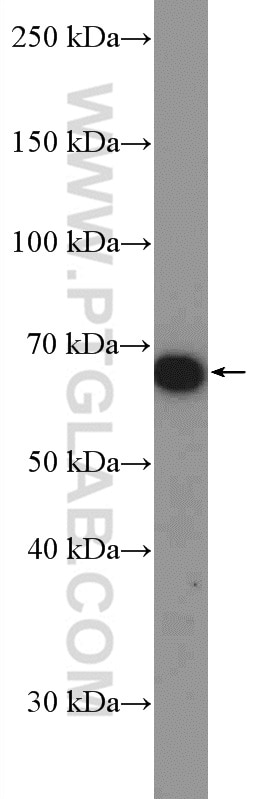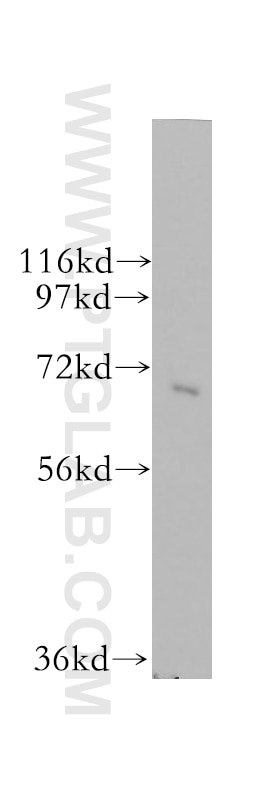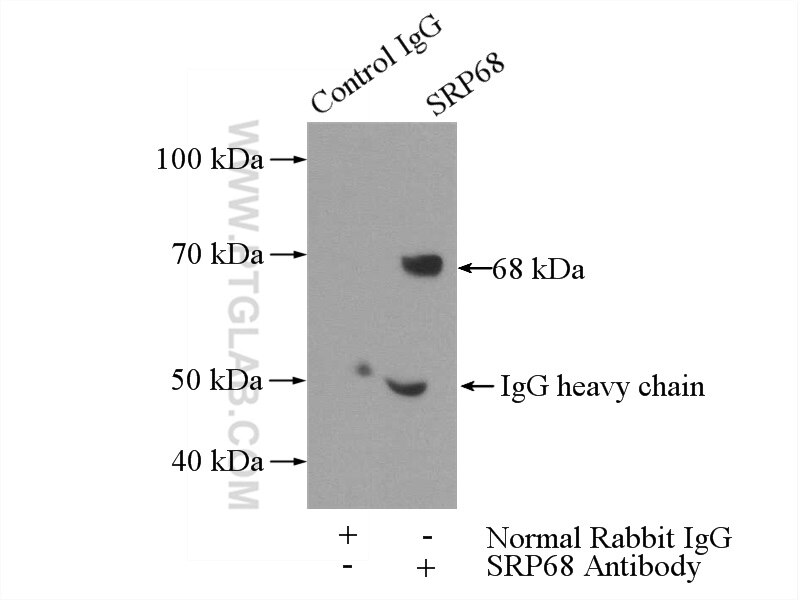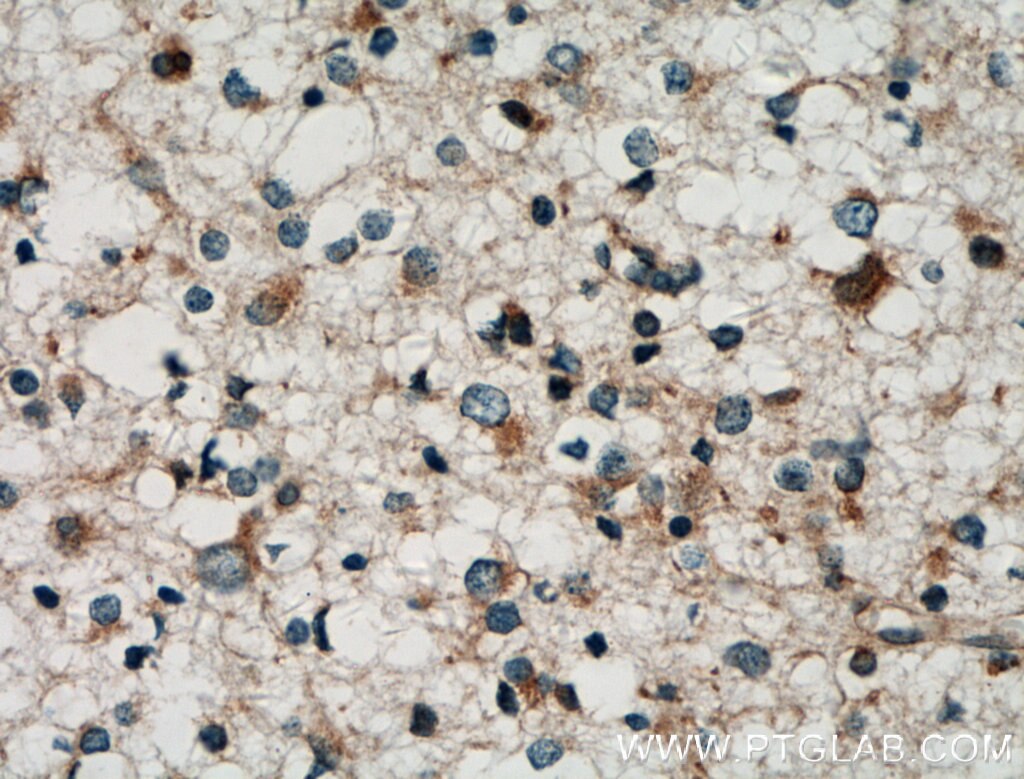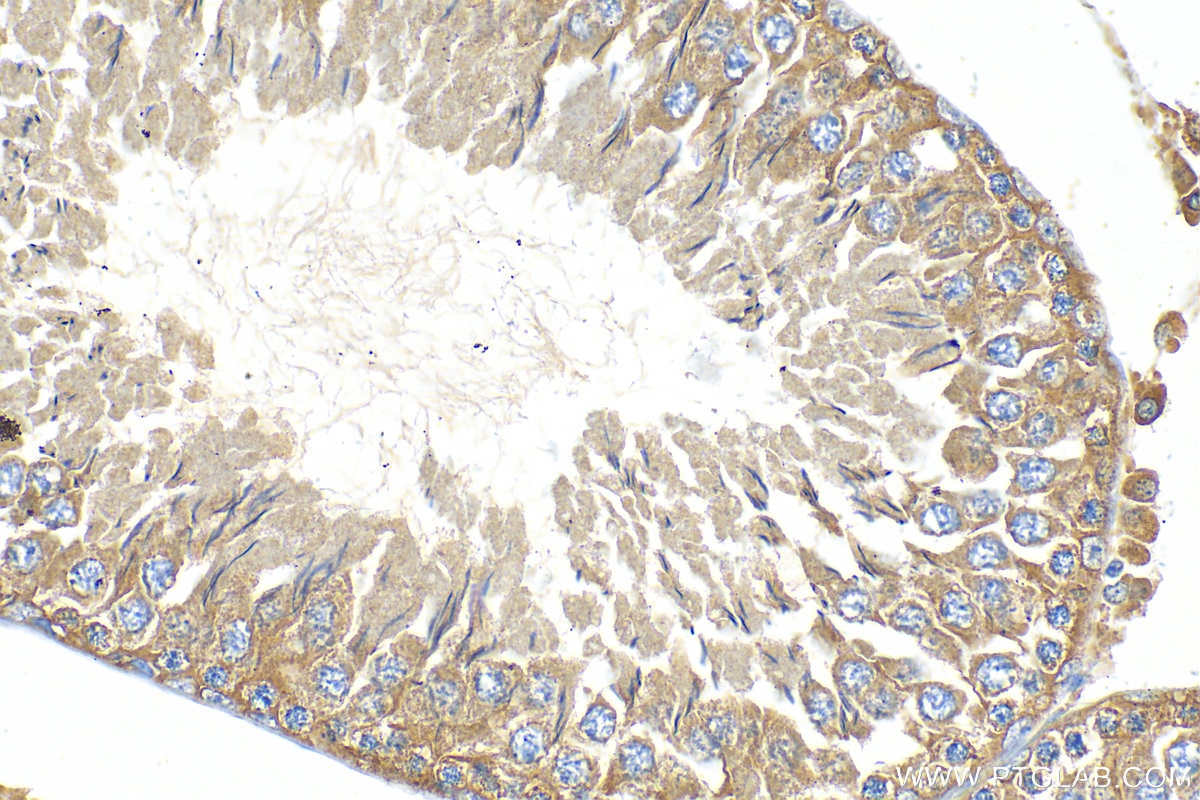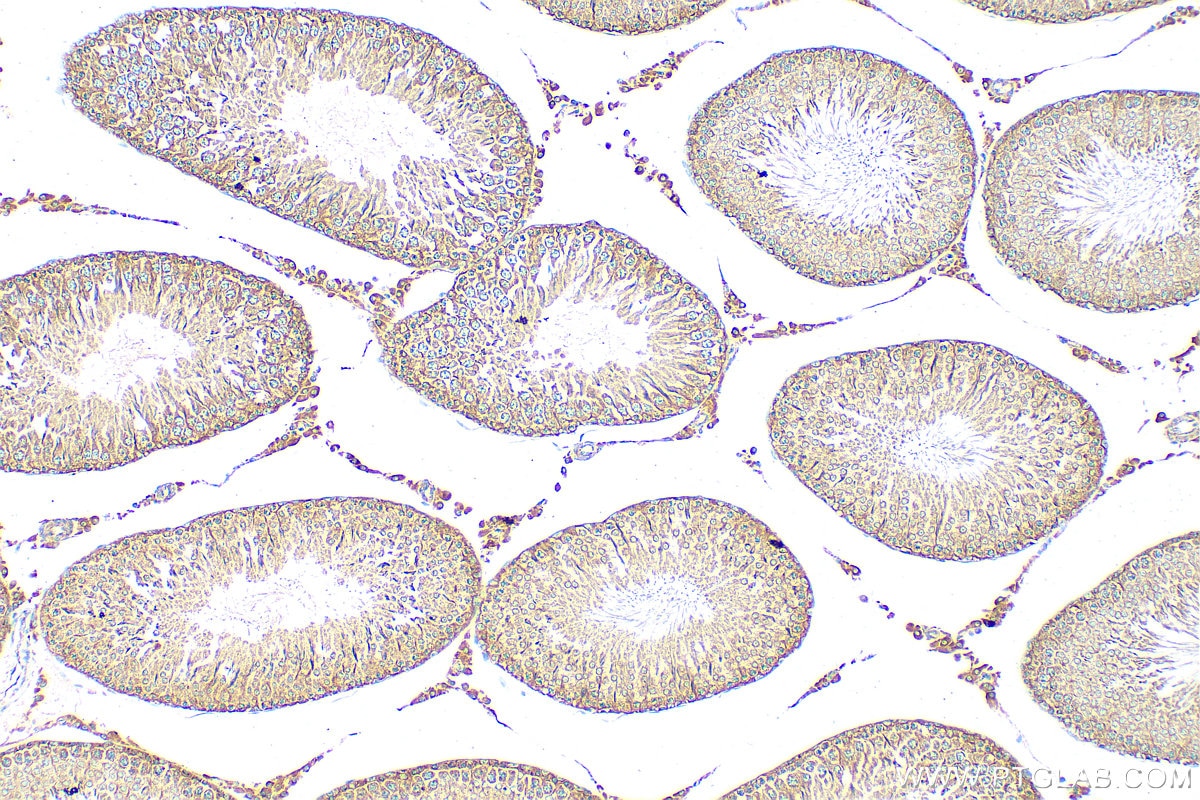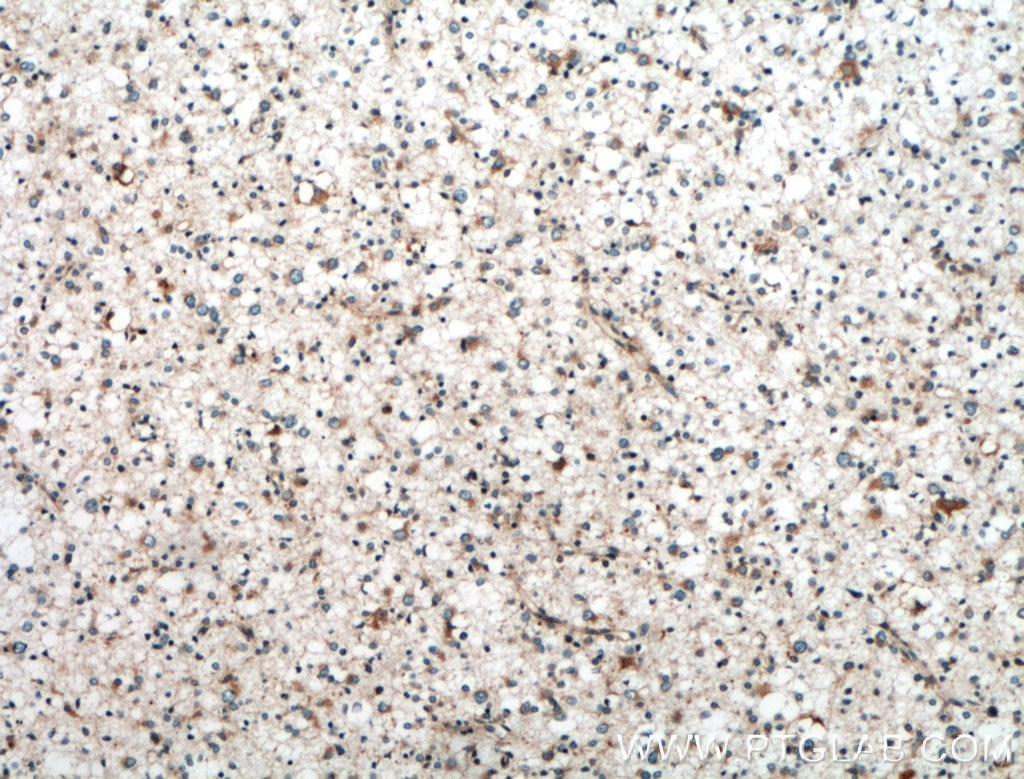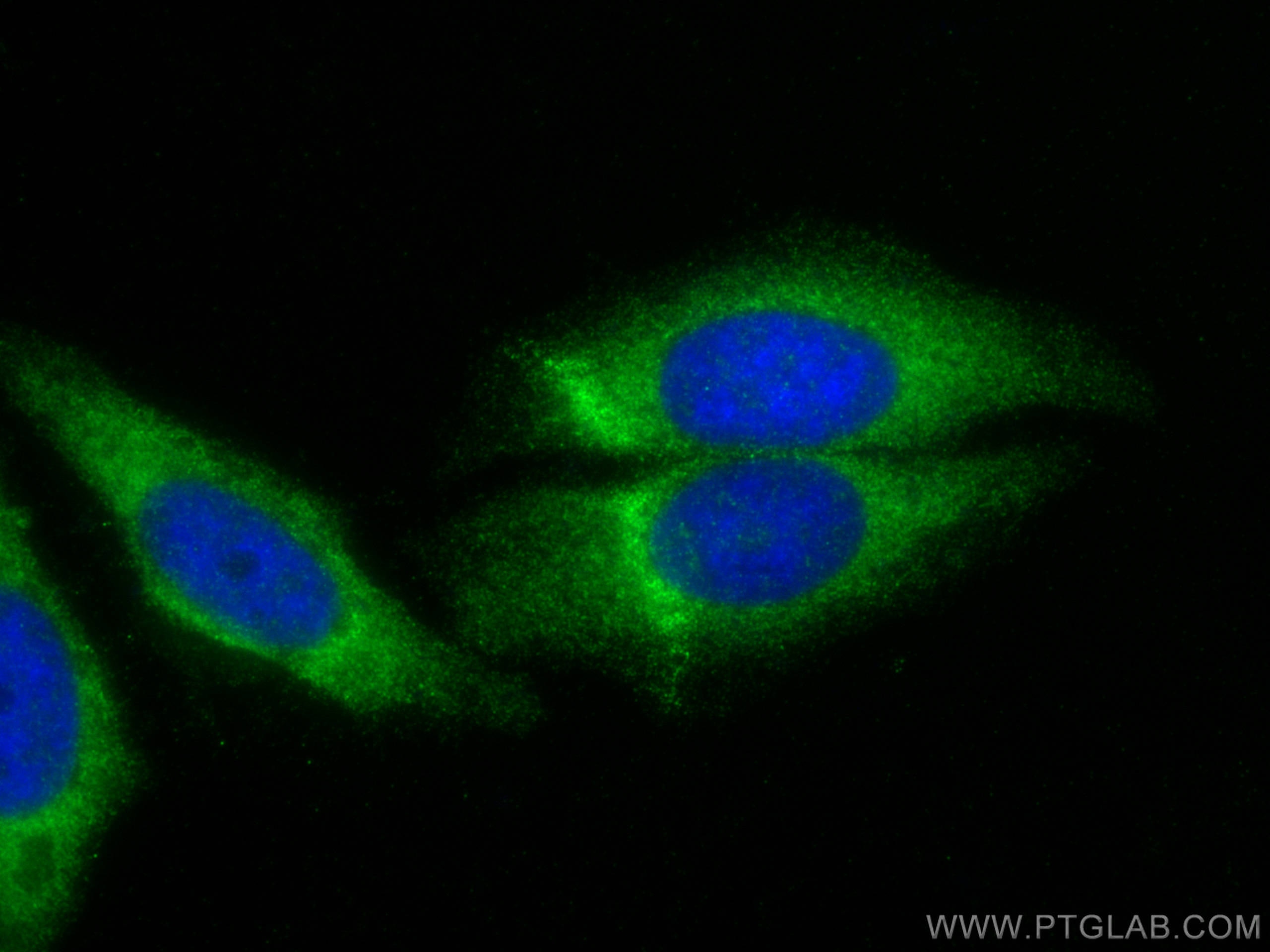Anticorps Polyclonal de lapin anti-SRP68
SRP68 Polyclonal Antibody for WB, IP, IF, IHC, ELISA
Hôte / Isotype
Lapin / IgG
Réactivité testée
Humain, rat, souris
Applications
WB, IHC, IF/ICC, IP, ELISA
Conjugaison
Non conjugué
N° de cat : 11585-1-AP
Synonymes
Galerie de données de validation
Applications testées
| Résultats positifs en WB | tissu cérébral de souris, tissu cérébral humain |
| Résultats positifs en IP | tissu rénal de souris |
| Résultats positifs en IHC | tissu de gliome humain, tissu testiculaire de rat il est suggéré de démasquer l'antigène avec un tampon de TE buffer pH 9.0; (*) À défaut, 'le démasquage de l'antigène peut être 'effectué avec un tampon citrate pH 6,0. |
| Résultats positifs en IF/ICC | cellules HepG2, |
Dilution recommandée
| Application | Dilution |
|---|---|
| Western Blot (WB) | WB : 1:500-1:2000 |
| Immunoprécipitation (IP) | IP : 0.5-4.0 ug for 1.0-3.0 mg of total protein lysate |
| Immunohistochimie (IHC) | IHC : 1:50-1:500 |
| Immunofluorescence (IF)/ICC | IF/ICC : 1:200-1:800 |
| It is recommended that this reagent should be titrated in each testing system to obtain optimal results. | |
| Sample-dependent, check data in validation data gallery | |
Applications publiées
| WB | See 7 publications below |
Informations sur le produit
11585-1-AP cible SRP68 dans les applications de WB, IHC, IF/ICC, IP, ELISA et montre une réactivité avec des échantillons Humain, rat, souris
| Réactivité | Humain, rat, souris |
| Réactivité citée | Humain, souris |
| Hôte / Isotype | Lapin / IgG |
| Clonalité | Polyclonal |
| Type | Anticorps |
| Immunogène | SRP68 Protéine recombinante Ag2177 |
| Nom complet | signal recognition particle 68kDa |
| Masse moléculaire calculée | 68 kDa |
| Poids moléculaire observé | 68 kDa |
| Numéro d’acquisition GenBank | BC020238 |
| Symbole du gène | SRP68 |
| Identification du gène (NCBI) | 6730 |
| Conjugaison | Non conjugué |
| Forme | Liquide |
| Méthode de purification | Purification par affinité contre l'antigène |
| Tampon de stockage | PBS avec azoture de sodium à 0,02 % et glycérol à 50 % pH 7,3 |
| Conditions de stockage | Stocker à -20°C. Stable pendant un an après l'expédition. L'aliquotage n'est pas nécessaire pour le stockage à -20oC Les 20ul contiennent 0,1% de BSA. |
Informations générales
The signal recognition particle (SRP) is a ribonucleoprotein complex that mediates the targeting of secretory proteins to the rough endoplasmic reticulum (ER) membrane. This ribonucleoprotein complex might interact directly with the docking protein in the ER membrane and possibly participate in the elongation arrest function. SRP68 is one component of the ribonucleprotein complex, and forms a heterodimer with SRP72.
Protocole
| Product Specific Protocols | |
|---|---|
| WB protocol for SRP68 antibody 11585-1-AP | Download protocol |
| IHC protocol for SRP68 antibody 11585-1-AP | Download protocol |
| IF protocol for SRP68 antibody 11585-1-AP | Download protocol |
| IP protocol for SRP68 antibody 11585-1-AP | Download protocol |
| Standard Protocols | |
|---|---|
| Click here to view our Standard Protocols |
Publications
| Species | Application | Title |
|---|---|---|
Nat Commun The Perlman syndrome DIS3L2 exoribonuclease safeguards endoplasmic reticulum-targeted mRNA translation and calcium ion homeostasis. | ||
Nucleic Acids Res The pioneer round of translation ensures proper targeting of ER and mitochondrial proteins. | ||
Nucleic Acids Res Implication of the SMN complex in the biogenesis and steady state level of the signal recognition particle. | ||
Nucleic Acids Res Protein Hit1, a novel box C/D snoRNP assembly factor, controls cellular concentration of the scaffolding protein Rsa1 by direct interaction. | ||
PLoS One The CELF1 RNA-Binding Protein Regulates Decay of Signal Recognition Particle mRNAs and Limits Secretion in Mouse Myoblasts. |
